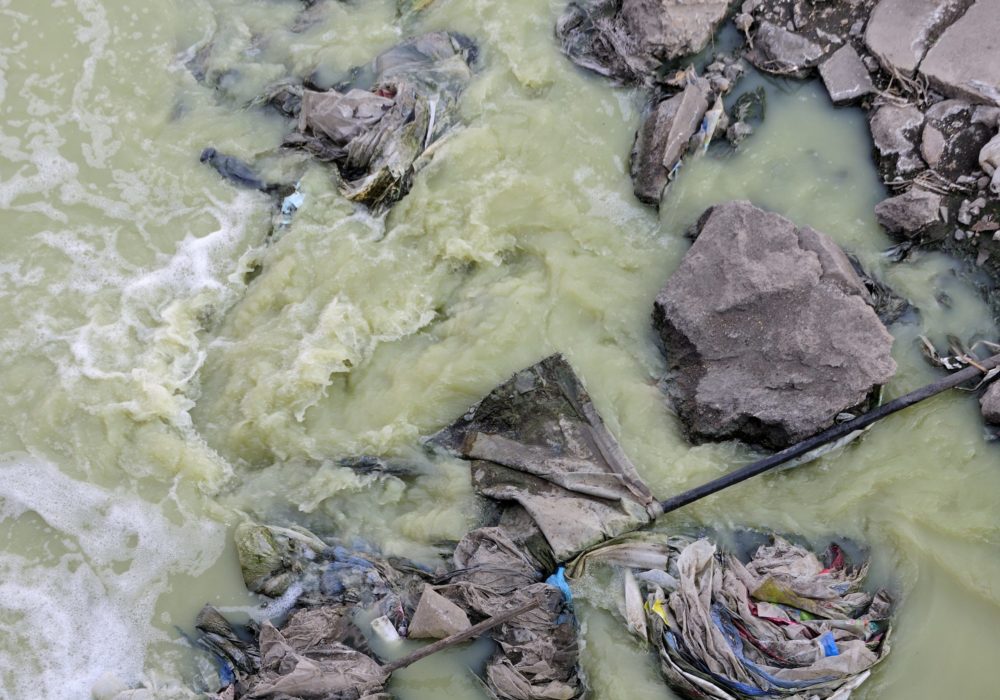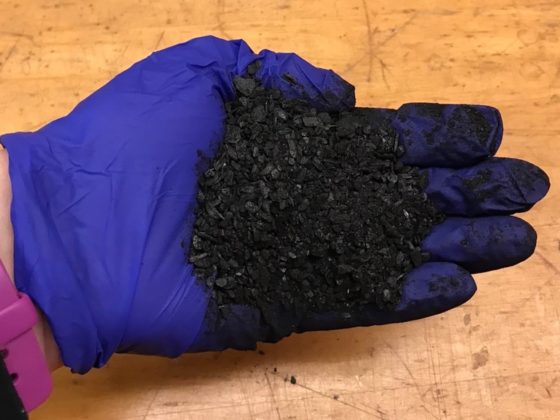As part of this year’s World Water Events, the Global Water Initiative hosted Professor Shaoda Wang from the Harris School of Public Policy at the University of Chicago. Professor Wang presented his ongoing research project together with a number of other researchers and colleagues. The title of his talk was Does Public Participation Matter? Evidence from a National-Scale Experiment on the Enforcement of Environmental Regulations in China.[i] The group of researchers studies the effectiveness of water and air pollution regulation in China. It is no secret that China’s rapid growth has led to significant air and water pollution. Since the 1990s, China has started to reform its environmental policies and regulations. Professor Wang and his group investigate to what extent public engagement and public participation might increase the effectiveness of environmental regulation. They take as a starting point the Continuous Emissions Monitoring System (CEMS), launched in 2013. CEMS involved the installation in more than 25,000 plants nationwide of automatic air and water pollutant monitors, and posting the plants’ hourly emissions data in real time on (public) provincial government websites. We talked to him after his talk.
Can you describe the experimental setup of your investigation? And why is there a need for your intervention since firms’ pollution data are in fact already available for everyone to see on the governmental websites? Was it difficult to get this program up and running?
While the CEMS already discloses real-time firm emission information to the public, there is still salient imperfect compliance with the environmental standards: about 3% of the CEMS firms violate the national emission standards every day (see figure below). And in the absence of enough public pressure, even though the government is fully aware of such violations, it could lack the incentive or the ability to effectively regulate these violating firms and make them achieve compliance, given the significant economic costs of doing so. The purpose of our experiment is thus to investigate whether public participation in environmental governance can hold the government more accountable in environmental regulation enforcement.
Specifically, in the experiment, leveraging the consolidated CEMS data, we daily determine the identity of all firms in violation of the relevant emissions standard. We randomly assign each firm to one of several treatment arms; treatments include, for example, our making real-time notifications to firms or local government regulators when a firm is violating the environmental standard. The treatment arms vary by whether these notifications are done privately through direct communication to the firm or regulator, or publicly through social media. All the interventions were implemented by a group of citizen volunteers that we recruited through a leading environmental NGO in China. There is also a control group for which no intervention occurs. In this way, the experiment identifies the additional effect of the notifications above the CEMS program’s baseline impacts.
Figure: The daily violations of the water and air pollution standards by the CEMS firms Getting the experiment up and running was a relatively smooth process thanks to China’s new environmental law, which explicitly encourages citizen participation in environmental protection in the form of appealing against pollution violations. The major challenge was the unexpected lockdown caused by COVID, which delayed our experiment for three months until the CEMS firms started producing and polluting at their normal levels again.
Getting the experiment up and running was a relatively smooth process thanks to China’s new environmental law, which explicitly encourages citizen participation in environmental protection in the form of appealing against pollution violations. The major challenge was the unexpected lockdown caused by COVID, which delayed our experiment for three months until the CEMS firms started producing and polluting at their normal levels again.
What do you find, and are your findings significant?
We find that publicly notifying the regulator of a firm’s violation through Weibo (a popular Chinese social media platform comparable to Twitter) causes an increase in regulatory oversight and reduces subsequent violations and pollution emissions. For example, firms assigned to the public notification treatment arm are 40% less likely to commit pollution violations. Moreover, their measured sulfur dioxide (SO2) emission concentrations, which are relevant for air pollution, decline by 12%, and their chemical oxygen demand (COD) emission concentrations, which point toward water pollution, fall by 5% in the eight months after a public intervention, relative to control firms. Additionally, randomly increasing the visibility of a social media notification about an environmental violation by adding “likes” and “retweets” to the Weibo post causes a 60% increase in the probability of an onsite investigation of the violation by local government officials.
In contrast, privately informing the regulator about violations has little effect on firm emissions if it is not paired with public exposure. For instance, treatments that privately tell the regulator about violations through a website, direct messages on Weibo, or phone calls cause only a marginal and statistically insignificant improvement in the firm’s environmental performance. Importantly, the exact message is identical in the public and private interventions. It is noteworthy, however, that the “private appeals” treatment is significantly more effective if the violating firm is simultaneously informed about the public’s dissatisfaction with its pollution violations. This suggests that in addition to incentivizing the local government to better enforce regulation, public pressure also increases the firms’ willingness to achieve compliance with the national emission standards.
We also find that there is a positive, rather than zero-sum, general equilibrium impact of the public notification treatments on environmental quality: when a larger share of firms get “treated” in a region, the “control firms” in that region are also significantly less likely to commit violations. These results suggest that increased citizen participation fosters a new equilibrium in which the government is more accountable for implementing pollution standards.
Our findings are economically significant: the reductions in industrial emissions can be detected in ambient pollution levels, and a simple calculation suggests that if all CEMS firms had their violations scrutinized under public pressure, the total daily pollution violations in China would decrease by more than 35,000 each year. The interventions are also highly cost effective: given that the CEMS is already up and running, the public needs only minimal efforts to detect pollution violations and post them on social media. This leads us to believe that given some relatively simple nudges, the public participation in environmental governance created by our experiment could be sustained in the long run and make even larger contributions to China’s efforts to improve environmental quality.
Where are the contributions of your paper to the literature? Is it the case that similar experiments could be performed in the United States, where it is no secret that enforcement of environmental standards is relatively lax?
This national-scale experiment allows us to offer unique insights about when and how citizen participation affects governance. Citizen participation has long been promoted as the key to improving government accountability and public service delivery, especially in policy areas that are directly related to citizen welfare (Stiglitz, 2002; Mansuri and Rao, 2004; World Bank, 2004). However, the existing empirical literature has found mixed evidence on the effectiveness of public participation on governance outcomes (Kremer and Vermeersch, 2002; Olken, 2007; Banerjee and Duflo, 2006; Bjorkman and Svensson, 2009; Banerjee et al., 2010; Duflo et al., 2011; Grossman et al. 2018; Buntaine et al. 2021), and there exists little direct evidence of the underlying mechanisms through which public participation may or may not improve government accountability. The unprecedented scale of our experiment permits us to vary the publicity, channel, and target of public appeals and thereby provide new insights into when and why citizen participation affects the performance of local governments.
[i] M. Buntaine, M. Greenstone, G. He, M. Liu, S. Wang, and B. Zang, “Does Public Participation Matter? Evidence from a National-Scale Experiment on the Enforcement of Environmental Regulations in China,” preliminary and incomplete working paper, April 2021.





